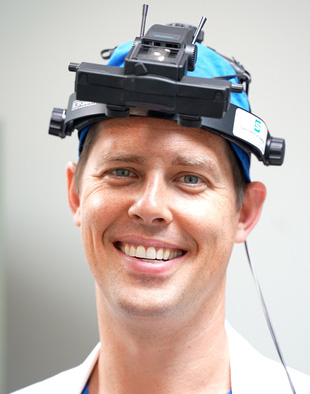As we age, our skin often gets special attention because changes in outward appearance make it obvious that something may be happening beneath the surface. On the other hand, our eyes tend to hide the wear and tear they suffer. What’s more, seemingly minor issues, like trouble focusing, are sometimes ignored for a long time.
While decreased visual acuity is a side effect of aging, that doesn’t mean you should accept this as normal. In fact, once you take a proactive approach to your eye health, you will learn that there are many things you can do to preserve and even restore your sight. Here are some of the warning signs to be aware of.
Changes in Visual Acuity
There are several ways your eyesight can change with age, and each one is telling of a different potential problem.
- Night Blindness: Healthy eyes adjust from a well-lit environment to a dark place with relative ease. But what happens when you start having trouble seeing at night? This could be a sign of cataracts, glaucoma, or Vitamin A deficiency.
- Blurred or Distorted Vision: If you find that your vision is blurry or distorted, this could be a sign of a variety of problems, including astigmatism, cataract, or age-related macular degeneration.
- Light Sensitivity: Suddenly exposing your eyes to bright lights will always result in some discomfort, but if you find that your eyes are becoming more sensitive to light, this is a condition known as photophobia. Photophobia may cause you to squint while outside or even in a bright room. More severe cases could result in pain when looking at a light source. This could be a sign of dry eyes, uveitis, migraine, or a corneal abrasion.
If you experience any changes to your eyesight, especially sudden changes, you should speak to your eye doctor right away.

Visual Interruptions
Sometimes, your eyesight will be perfectly normal, but you may occasionally experience interruptions in your vision, like the following:
- Floaters: Do you have black specks, lines, or dots floating in your peripheral vision? Floaters are somewhat normal, but large floaters or a cluster could be a warning sign of diabetic retinopathy, a damaged retina, eye lymphoma, or posterior vitreous detachment.
- Flashes: Seeing flashes or streaks of light is common after rubbing your eyes vigorously, but if you see them under other circumstances, it could be a sign of a damaged retina or migraines.
- Dry Eyes: The environment can cause dry eyes, but chronic dry eyes can signal blepharitis, Sjogren’s Syndrome, and other concerning autoimmune diseases. If dry eyes are causing discomfort or making it harder to concentrate, you should bring it to the attention of your optometrist/ophthalmologist.
- Teary Eyes: Excessive tearing can also be a warning sign, most commonly pointing to bacterial keratitis, a blocked tear duct, pink eye, or even as the body’s way of overcompensating for dry eyes.
Have you experienced any of these visual interruptions or other concerning symptoms? If so, it’s important to talk to your eye doctor about them.
While certain changes to your eye health are expected with age, taking a proactive approach to caring for and correcting vision problems will help you preserve your health and quality of life for as long as possible.






